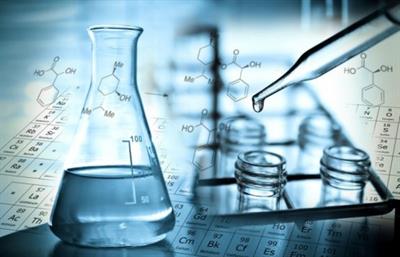A Comprehensive Guide to Assessing Chemical Products for Optimal Integrated Solutions in Production and Beyond
In the significantly complex landscape of production, the assessment of chemical products stands as a crucial aspect in accomplishing integrated remedies that prioritize safety, effectiveness, and sustainability. This detailed guide details necessary facets such as regulative conformity, product compatibility, and cost-effectiveness, all while highlighting the significance of environmental stewardship.
Comprehending Regulative Conformity
In the realm of production, comprehending regulative compliance is extremely important for ensuring both item safety and security and environmental management. Regulatory frameworks, such as the Occupational Safety and Wellness Administration (OSHA) requirements and the Epa (EPA) laws, dictate the risk-free handling, storage space, and disposal of chemical products. Compliance with these regulations not only safeguards staff members but additionally lessens environmental impact and boosts a company's online reputation.
Producers need to diligently evaluate the chemical materials they utilize, making sure adherence to the pertinent safety data sheets (SDS) and labeling needs, which provide crucial information pertaining to threats and risk-free use. Staying abreast of industry-specific regulations, such as the Registration, Assessment, Authorisation and Restriction of Chemicals (REACH) in Europe, is vital for keeping compliance and avoiding possible legal implications.
Normal audits and training are crucial parts of an extensive compliance approach, cultivating a society of safety and awareness amongst workers. By prioritizing governing compliance, makers can reduce risk, improve operational performance, and add to sustainable practices within the industry, eventually resulting in enhanced item quality and client fulfillment.
Assessing Product Compatibility
Regulative conformity establishes the foundation for risk-free production methods, however assessing product compatibility is similarly vital for functional performance and safety and security. Chemical Products. Product compatibility describes the ability of different chemical substances to exist together without negative communications that can endanger the stability of procedures or items. An extensive evaluation begins with recognizing the chemical homes, including reactivity, solubility, and security under different problems
Suppliers must perform compatibility screening to identify prospective reactions that may happen when chemicals are blended or enter contact with each other. This consists of examining factors such as temperature level variants, pressure changes, and the presence of pollutants. It is likewise important to consider the effects of products utilized in containers, pipes, and devices, as these can influence chemical behavior and efficiency.
Additionally, suppliers need to evaluate the possible influence of product compatibility on end-user applications. Inappropriate items can cause operational interruptions, item failings, and safety and security threats, which can harm online reputation and financial standing. Therefore, an organized technique to analyzing item compatibility not just improves functional effectiveness yet likewise makes sure the safety and security and integrity of chemical items throughout their lifecycle.
Assessing Cost-Effectiveness
Examining cost-effectiveness is vital for suppliers intending to maximize their chemical production processes while maintaining earnings. This assessment starts with a comprehensive analysis of both direct and indirect costs related to chemical items. Direct costs include the acquisition rate of chemicals, transport, and storage, while indirect costs might include labor, maintenance, and overhead expenditures.
To efficiently examine cost-effectiveness, manufacturers must use a complete cost of possession (TCO) approach. This technique makes it possible for an extensive understanding of all expenses throughout the item lifecycle, from procurement to disposal. In addition, using efficiency metrics-- such as yield read this post here prices and process performance-- can offer insights right into exactly how well chemical products add to total manufacturing objectives.
Benchmarking versus market standards can additionally highlight possible areas for price decrease or improvement. By contrasting their costs and efficiency with competitors, manufacturers can recognize best techniques and innovative solutions.
In addition, engaging vendors in discussions about pricing, volume discounts, and lasting agreements might produce desirable monetary arrangements. Inevitably, a tactical focus on cost-effectiveness sustains not just earnings yet also sustainability in the competitive landscape of chemical manufacturing.
Analyzing Environmental Effect

One important element is the option of basic materials. Sustainable sourcing can substantially lower adverse view it now effects, as sustainable or less unsafe products usually cause reduce exhausts and less harmful byproducts. In addition, makers need to think about the efficiency of their production procedures; enhancing these can lessen waste and power usage.
Additionally, item formulation plays an important duty in figuring out ecological security. Using eco-friendly chemistry concepts can lead to the advancement of more secure, less contaminating options. Suppliers need to likewise examine end-of-life circumstances for their items, advertising recycling or safe disposal methods to alleviate long-term environmental consequences.
Incorporating these considerations right into item examination not just improves corporate responsibility but additionally straightens with raising customer need for eco-friendly products. Chemical Products. Inevitably, a complete analysis of environmental impact is crucial for promoting sustainable production methods
Implementing High Quality Control Measures
The dedication to sustainable techniques and ecological safety normally reaches the application of quality control actions within manufacturing processes. Quality assurance is essential for making certain that chemical items fulfill predefined criteria and regulations, thereby guarding not just product efficiency however likewise ecological honesty.
To effectively carry out quality control procedures, you can try these out manufacturers ought to take on an organized approach, starting with the establishment of clear quality benchmarks. This includes specifying requirements for resources, intermediate items, and last results. Normal screening and assessment methods need to be set up to keep track of compliance with these benchmarks throughout the manufacturing cycle.

Educating and engaging team in high quality guarantee practices is just as critical. A well-informed labor force contributes to a culture of quality and liability, improving overall operational performance. Ultimately, strenuous quality control gauges not only make certain compliance yet likewise strengthen the brand name's online reputation and foster count on amongst consumers, straightening with the overarching objectives of sustainability and safety in the chemical production industry.
Final Thought
In final thought, the evaluation of chemical items demands a thorough understanding of governing compliance, item compatibility, cost-effectiveness, and environmental effect. This overview serves as an essential resource for attaining these vital goals in chemical item assessment - Chemical Products.